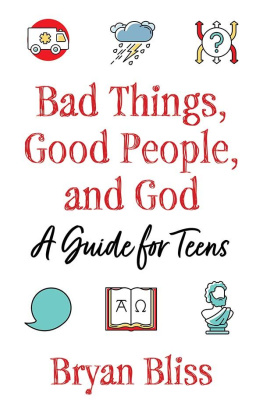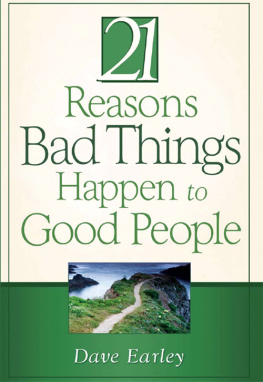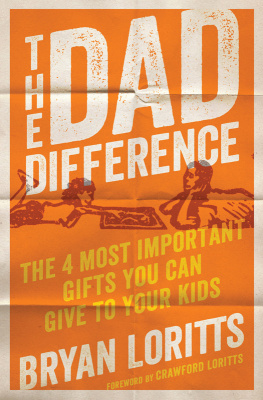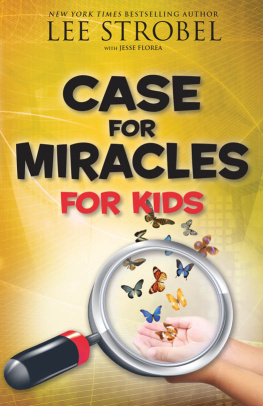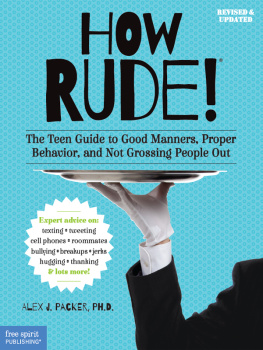Bad Things,
Good People,
and God
A Guide for Teens
Bryan Bliss

Copyright 2022 by Bryan Bliss
All rights reserved. No part of this book may be reproduced, stored in a retrieval system, or transmitted in any form or by any means, electronic or mechanical, including photocopying, recording, or otherwise, without the written permission of the publisher.
Unless otherwise noted, the Scripture quotations contained herein are from the New Revised Standard Version Bible, copyright 1989 by the Division of Christian Education of the National Council of Churches of Christ in the U.S.A. Used by permission. All rights reserved.
Morehouse Publishing, 19 East 34th Street, New York, NY 10016
Morehouse Publishing is an imprint of Church Publishing Incorporated.
Cover design by Jennifer Kopec, 2Pug Design
Typeset by PerfecType, Nashville, Tennessee
Library of Congress Cataloging-in-Publication Data
Names: Bliss, Bryan, author.
Title: Bad things, good people, and God : a guide for teens / Bryan Bliss.
Description: New York, NY : Morehouse Publishing, [2022] | Audience: Ages
13-18 | Audience: Grades 7-9
Identifiers: LCCN 2021041341 (print) | LCCN 2021041342 (ebook) | ISBN
9781640654822 (paperback) | ISBN 9781640654839 (epub)
Subjects: LCSH: Suffering--Religious aspects--Christianity. | Good and
evil--Religious aspects--Christianity. | Theodicy. | Christian teenagers--Religious life.
Classification: LCC BV4909 .B55 2022 (print) | LCC BV4909 (ebook) | DDC
248.8/6--dc23
LC record available at https://lccn.loc.gov/2021041341
LC ebook record available at https://lccn.loc.gov/2021041342
C ongratulations!
By picking up this book, youveperhaps unintentionallyjoined a discourse that has been happening... well, since people could talk. And complain. So, by congratulations of course I mean Im terribly sorry.
That all said, bad things happen. We know this.
But why?
This is a question that has nagged theologians and philosopherspeople like youfor centuries. Millennia, actually.
Basically forever.
But should it be such a difficult question? If we believe in a God who loves us, shouldnt evil just... disappear? Shouldnt it be as simple as saying, I believe, or, even better, having God say, I got this, and thenpoof!all of our pain, our hurt, the brokenness of the world, is gone.
Of course, this isnt the case.
And if were being honest, most of the answers that have been offered for this question arent exactly... comprehensive. It doesnt help that you have to contend with the Bible, centuries of theological hot takes, lived experiences, and, you know, the nagging doubt that none of this is real and were all just floating through the universe untethered from anything...
Lets take a deep breath.
Just because there isnt an easy answer (any answer?) to the problem of evilwhy bad things happendoesnt mean we need to live in a state of constant anxiety or dread. It is not an overstatement to say this is the biggest question of faith. Its also a question that all of us must wrestle with, cobble together some semblance of an answer, and claim our place as theologians in the world.
Yes, theologians.
Because what you have to say matters. Your theology matters. Your view of the world reveals another glimmer of truthsome small answerto these big questions.
So, what do you think?
Are you ready to think through one of the biggest questions of faith?
Along the way well look at the Bible, give a serious side-eye to some of the classic attempts at answering this question, think about sin and suffering, and come out the other side without a single scratch.
(Well, no promises on that last bit. You might be reading this in a hammock, get so excited by your new insights that you rush off to tell somebody, and fall to the ground. But be assured: the book itself will not cause you harm.)
A quick warning: by the end, youre going to have more questions.
Its inevitable.
But the questions will make things a little clearer. Hopefully theyll give you a glimpse of a path forward.
Because were all doing this one step at a time.
Are you ready?
S ome words are just fun to say.
Like, juniper. Thats a good oneit feels like a fun word, doesnt it? Oh! What about... barista? Say that one out loud right nowbarista! See, youre having fun. Youre smiling. You cant help it. The world is your oyster.
Hey, want to know a word that isnt any fun at all and, lets face it, is pretty much the worst word ever invented in the entire history of language?
Theodicy.
Nope. Dont like that one.
Saying theodicy is like biting down on tinfoil. Its like somebody is getting ready to hand you a big bowl of popcorn and just as you reach for that buttery, salty goodness, they dump it on the ground intentionally.
Theodicy is a rude word. A harsh word. A confusing word.
No thanks.
But if were going to talk about sufferingabout why bad things happenwe need to also talk about theodicy. As gross a word as it is, its also the word that is used by theologians to describe the conversation that asks why things like sickness, poverty, deathall of itexist in the world and how God is involved.
Do you need to know this word? Not really. Its a fancy word, strutting around with its nose in the air. That said, if you happen to be at coffee hour and you see your priest or pastor and you say, Sometimes I find myself considering theodicy and just find myself so... vexed, thats what you call a power move.
Perhaps less importantly, its also the word that starts our conversation.
Bad things happen. People suffer. This is theodicy.
If we break the word down, we get two Greek wordsTheos and dik. Theos is translated as God and dik is often translated as trial or judgment. So, when you put those together, the word theodicy is about asking big questionsabout justifying God.
This might seem strangewhy would we need to justify God? Isnt the point of, well, being God that you dont have to justify Gods self? That what you do is what you do and people are left to simply deal with the repercussions?
Well, yeah. Thats the crux of the problem, isnt it?
Lets do this a different way.
What are some words you would use to describe God?
Take a second, but heres a few:
Loving. All-knowing. The Good Shepherd.
You likely came up with some different ones but these, typically, give us a pretty good look at who and what God is. The problem materializes when something badeither big or smallhappens. For some people, its easy to chalk that up to Gods will (dont worry, well talk about that one later...) or the idea that, if God wants something to happen its going to happen, so buckle up and learn something from all this pain and grief. Now, normal people who are not complete psychopaths would hear that argument and think, Hmm. This doesnt seem to add up. Lets check our math.
| A Good and | The Mere | Yeah, Only |
| Loving God Who | Existence | a Complete |
| Is Omniscient, | + | of Hungry | = | Psycho |
| Omnipresent, | Children | Wouldnt Have |
| Omnipotent | Any Questions |
We, friends, are not complete psychos. And Im betting you have questions.

